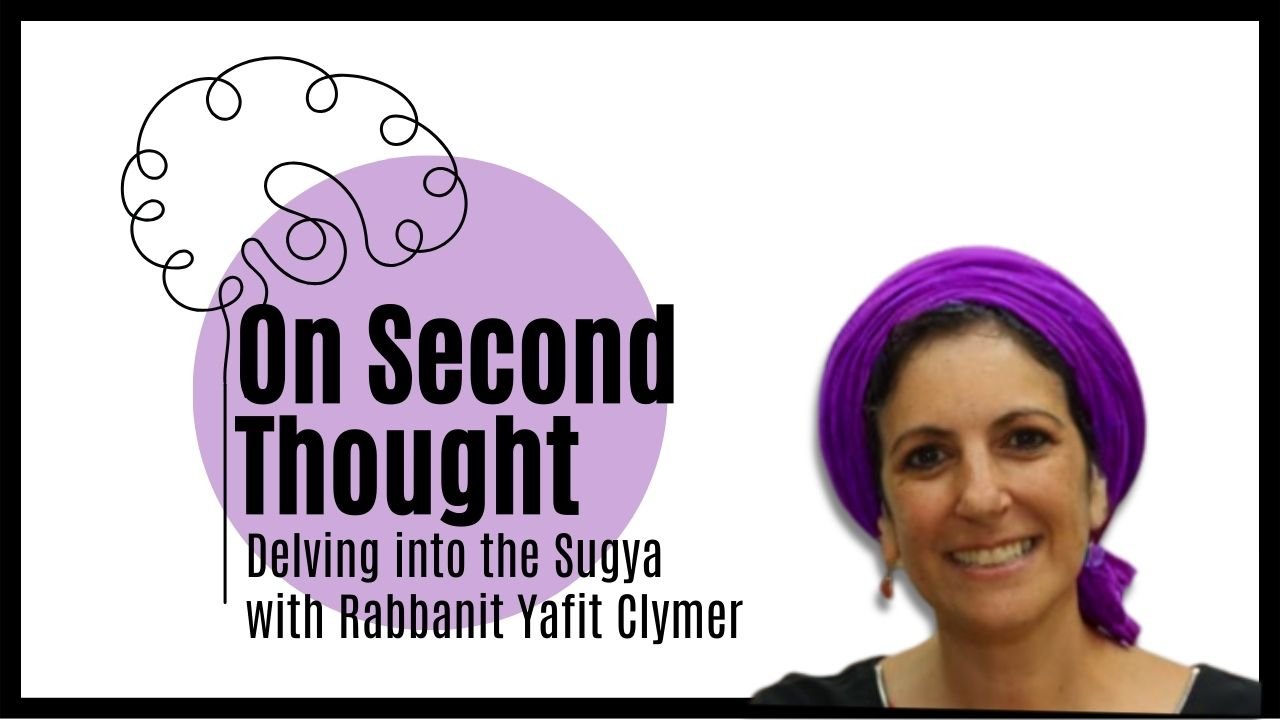Bava Batra 88
כְּגוֹן שֶׁנְּטָלָהּ לָמוֹד בָּהּ, וְכִדְרַבָּה – דְּאָמַר רַבָּה: הִכִּישָׁהּ – נִתְחַיֵּיב בָּהּ.
The mishna is referring to a case where the storekeeper took the jug from the child in order to measure with it for him, and because he took it in his hands, he is liable in the event of an accident, in accordance with the opinion of Rabba. As Rabba says: With regard to the obligation to return lost animals, even in a case where the finder is exempt from caring for the animal and returning it to its owner, e.g., if he is an elderly person and it is beneath his dignity, if he struck the animal in order to lead it, then he becomes obligated to return it. Likewise, the Rabbis here maintain that the storekeeper’s action renders him liable for the jug.
אֵימוֹר דְּאָמַר רַבָּה – בְּבַעֲלֵי חַיִּים, דְּאַנְקְטִינְהוּ נִיגְרָא בָּרָיָיתָא; כִּי הַאי גַּוְנָא מִי אָמַר?!
The Gemara asks: You can say that Rabba says his statement with regard to animals, as the finder taught them to take steps away, i.e., he worsened the situation, as he causes them to stray even further from their owner. Nevertheless, in a case like this, where the storekeeper took the jug from the child, did Rabba say that the storekeeper is liable? The storekeeper’s action does not make it any more likely that the jug will break.
אֶלָּא אָמַר רָבָא: אֲנִי וַאֲרִי שֶׁבַּחֲבוּרָה תַּרְגֵּימְנוּהָ – וּמַנּוּ? רַבִּי זֵירָא; הָכָא בְּמַאי עָסְקִינַן – כְּגוֹן שֶׁנְּטָלָהּ לָמוֹד בָּהּ לַאֲחֵרִים.
Rather, Rava said: I and the lion of the group explained it. And who is this great Sage, referred to as a lion? It is Rabbi Zeira, and the explanation is as follows: Here we are dealing with a case where the storekeeper took the jug from the child in order to measure with it for others, without the knowledge of the father.
וּבְשׁוֹאֵל שֶׁלֹּא מִדַּעַת קָא מִיפַּלְגִי – מָר סָבַר: שׁוֹאֵל הָוֵי, וּמָר סָבַר: גַּזְלָן הָוֵי.
And the Rabbis and Rabbi Yehuda disagree with regard to a borrower who takes an item without the owner’s knowledge. One Sage, Rabbi Yehuda, holds that the storekeeper is considered like any other borrower and once he returns the jug to the child, he is no longer responsible for it. And one Sage, i.e., the Rabbis, holds that someone who borrows without the owner’s knowledge is a robber and is obligated to return the item to its owner. Therefore, the storekeeper must pay for the jug that the child broke before it reached the father.
גּוּפָא – אָמַר שְׁמוּאֵל: הַנּוֹטֵל כְּלִי מִן הָאוּמָּן לְבַקְּרוֹ, וְנֶאֱנַס בְּיָדוֹ – חַיָּיב. וְהָנֵי מִילֵּי הוּא דְּקַיְצִי דְּמֵיהּ.
The Gemara returns to the matter itself. Shmuel says: With regard to one who takes a vessel from a craftsman in order to examine it, and an accident occurred while it was in his possession and it broke, he is liable to pay restitution for the vessel. The Gemara explains: And this statement applies only in a case where the monetary value of the vessel is fixed, because he examines the vessel merely to ensure there is nothing wrong with it, and it is assumed that if he finds no defect he will buy it.
הַהוּא גַּבְרָא דְּעָל לְבֵי טַבָּחָא, אַגְבַּהּ אַטְמָא דְבִישְׂרָא. בַּהֲדֵי דְּקָא אַגְבַּהּ, אֲתָא פָּרָשָׁא מִרְמֵא מִינֵּיהּ. אֲתָא לְקַמֵּיהּ דְּרַב יֵימַר, חַיְּיבֵיהּ לְשַׁלּוֹמֵי דְּמָיהּ. וְהָנֵי מִילֵּי הוּא דְּקַיְצִי דְּמָיהּ.
The Gemara relates: There was a certain man who entered a butcher shop and lifted a thigh of meat to examine it. While he was lifting it, a horseman came and seized it from him. The buyer came before Rav Yeimar, who deemed him liable to pay its monetary value to the seller, because it was seized from him after he had lifted it. The Gemara again notes: And this matter, i.e., halakha, applies only in a place where the monetary value of the item is fixed, and therefore lifting it is equivalent to finalizing the sale.
הַהוּא גַּבְרָא דְּאַיְיתִי קָארֵי לְפוּם נַהֲרָא. אֲתוֹ כּוּלֵּי עָלְמָא, שְׁקוּל קָרָא קָרָא. אֲמַר לְהוּ: הֲרֵי הֵן מוּקְדָּשִׁין לַשָּׁמַיִם.
The Gemara relates a similar incident: There was a certain man who brought pumpkins to the city of Pum Nahara. Everyone came and took a pumpkin with the intention of buying it, but had yet to pay for it. The seller was angry, and since he did not know from whom to demand payment, he said to them: The pumpkins are hereby consecrated to Heaven.
אֲתוֹ לְקַמֵּיהּ דְּרַב כָּהֲנָא, אֲמַר לְהוּ: אֵין אָדָם מַקְדִּישׁ דָּבָר שֶׁאֵינוֹ שֶׁלּוֹ. וְהָנֵי מִילֵּי הוּא דְּקַיְצִי דְּמַיְיהוּ, אֲבָל לָא קַיְצִי דְּמַיְיהוּ – בִּרְשׁוּת מָרַיְיהוּ קָיְימִי, וְשַׁפִּיר אַקְדֵּישׁ.
They came before Rav Kahana to inquire about the halakhic status of the pumpkins. Rav Kahana said to them: This statement has no effect, as a person cannot consecrate an item that is not his, and since the buyers had lifted the pumpkins, they no longer belonged to the seller. Once again the Gemara points out: And this matter, i.e., halakha, applies only in a place where the item’s monetary value is fixed, and therefore lifting it is akin to finalizing the sale. But if the item’s monetary value is not fixed, it remains in the jurisdiction of its owner, and the seller did well, i.e., was successful, in that he consecrated it.
תָּנוּ רַבָּנַן: הַלּוֹקֵחַ יָרָק מִן הַשּׁוּק, וּבֵירַר וְהִנִּיחַ – אֲפִילּוּ כׇּל הַיּוֹם כּוּלּוֹ, לֹא קָנָה וְלֹא נִתְחַיֵּיב בְּמַעֲשֵׂר.
§ The Sages taught: In the case of one who wishes to buy vegetables from the market and the seller is an am ha’aretz, i.e., one who is unreliable with regard to tithes, in which case the buyer is required to separate tithes after his purchase, and he selected superior-quality vegetables from inferior-quality vegetables and placed them to the side, as he was considering purchasing them, even if he did this all day, if he does not decide to buy the vegetables he does not acquire them and does not become obligated in separating tithes.
גָּמַר בְּלִבּוֹ לִקְנוֹתוֹ – קָנָה וְנִתְחַיֵּיב בְּמַעֲשֵׂר. לְהַחְזִירוֹ אִי אֶפְשָׁר – שֶׁכְּבָר נִתְחַיֵּיב בְּמַעֲשֵׂר, וּלְעַשְּׂרוֹ אִי אֶפְשָׁר – שֶׁכְּבָר מַפְחִיתָן בְּדָמִים. הָא כֵּיצַד? מְעַשְּׂרוֹ, וְנוֹתֵן לוֹ דְּמֵי מַעֲשֵׂר.
If he had determined to buy the vegetables he selected, he acquires them and becomes obligated in separating tithes. In such a case, it is not possible for him to decide to not buy the vegetables and to return them to the seller in their present state, as they have already became obligated in tithes, and, likewise, it is not possible to tithe them and return them to the seller, as he would then lower their monetary value. How should he proceed? He should tithe the produce, give the tithes to an appropriate recipient, and give the seller money in exchange for the tithes that he separated from it.
אַטּוּ מִשּׁוּם דְּגָמַר בְּלִבּוֹ לִקְנוֹת, קָנָה וְנִתְחַיֵּיב בְּמַעֲשֵׂר?! אָמַר רַב הוֹשַׁעְיָא: הָכָא בִּירֵא שָׁמַיִם עָסְקִינַן, כְּגוֹן רַב סָפְרָא, דְּקַיֵּים בְּנַפְשֵׁיהּ ״וְדֹבֵר אֱמֶת בִּלְבָבוֹ״.
The Gemara asks: Is that to say that because one determined to buy the produce, even though he says nothing and performs no act of acquisition, he acquires the produce and becomes obligated in tithes? Rav Hoshaya said: Here, we are dealing with a buyer who is God-fearing, such as Rav Safra, who himself fulfilled the verse: “And speaks truth in his heart” (Psalms 15:2). With regard to business matters Rav Safra considered himself bound by his thoughts at the time of negotiations, even if he did not express them verbally or perform any action (see Makkot 24a). A person on the ethical level of Rav Safra acquires the produce and becomes obligated to separate tithes from the moment that he decides to buy it.
מַתְנִי׳ הַסִּיטוֹן מְקַנֵּחַ מִדּוֹתָיו אֶחָד לִשְׁלשִׁים יוֹם. וּבַעַל הַבַּיִת, אֶחָד לִשְׁנֵים עָשָׂר חֹדֶשׁ. רַבָּן שִׁמְעוֹן בֶּן גַּמְלִיאֵל אוֹמֵר: חִילּוּף הַדְּבָרִים.
MISHNA: A wholesaler [hassiton] must clean his measuring vessels, which are used for measuring liquids such as oil and wine, once every thirty days, because the residue of the liquids sticks to the measure and reduces its capacity. And a homeowner who sells his goods must clean his measuring vessels only once every twelve months. Rabban Shimon ben Gamliel says: The matters are reversed. In the case of one who is constantly using his vessels for selling merchandise the residue does not adhere to the measuring vessel, and therefore a wholesaler must clean his measures only once a year. But in the case of a homeowner, who does not sell as often, the residue adheres to the measuring vessel; therefore, he must clean them every thirty days.
חֶנְווֹנִי, מְקַנֵּחַ מִדּוֹתָיו פַּעֲמַיִם בְּשַׁבָּת, וּמְמַחֶה מִשְׁקְלוֹתָיו פַּעַם אַחַת בְּשַׁבָּת, וּמְקַנֵּח מֹאזְנַיִם עַל כׇּל מִשְׁקָל וּמִשְׁקָל. אָמַר רַבָּן שִׁמְעוֹן בֶּן גַּמְלִיאֵל: בַּמֶּה דְּבָרִים אֲמוּרִים – בְּלַח, אֲבָל בְּיָבֵשׁ – אֵינוֹ צָרִיךְ.
A storekeeper, who constantly sells merchandise in small quantities, cleans his measuring vessels twice a week and cleans his weights once a week; and he cleans the pans of his scales after each and every weighing, to ensure that no merchandise has adhered to the pans, thereby increasing their weight. Rabban Shimon ben Gamliel said: In what case is this statement, that it is necessary to clean a measuring vessel, said? With regard to moist items, which are likely to adhere to the measuring vessels. But with regard to dry goods, which do not adhere to the measuring vessels, one does not need to clean his measuring vessels.
וְחַיָּיב לְהַכְרִיעַ לוֹ טֶפַח. הָיָה שׁוֹקֵל לוֹ עַיִן בְּעַיִן, נוֹתֵן לוֹ גֵּירוּמִין. אֶחָד לַעֲשָׂרָה בַּלַּח, וְאֶחָד לְעֶשְׂרִים בַּיָּבֵשׁ.
And before adding the weights and merchandise the seller is obligated to let the pans of the scale that will hold the merchandise tilt an extra handbreadth for the buyer by adding a weight to that side. If the seller weighed for him exactly, i.e., with the scales equally balanced initially, instead of allowing the scales to tilt an extra handbreadth, he must give the buyer additional amounts [geirumin], an additional one-tenth in the case of liquids sold by weight, and an additional one-twentieth in the case of dry goods.
מָקוֹם שֶׁנָּהֲגוּ לָמוֹד בְּדַקָּה – לֹא יָמוֹד בְּגַסָּה. בְּגַסָּה – לֹא יָמוֹד בְּדַקָּה. לִמְחוֹק – לֹא יִגְדּוֹשׁ. לִגְדּוֹשׁ – לֹא יִמְחוֹק.
The mishna continues to discuss the correct method of weighing: In a place where they were accustomed to measure merchandise in several stages with a small measuring vessel, one may not measure all the items at once with a single large measuring vessel. In a place where they measure with one large measuring vessel, one may not measure with several small measuring vessels. In a place where the custom is to level the top of the measuring vessel to remove substances heaped above its edges, one may not heap it, and where the custom is to heap it, one may not level it.
גְּמָ׳ מְנָהָנֵי מִילֵּי? אָמַר רֵישׁ לָקִישׁ, דְּאָמַר קְרָא: ״אֶבֶן שְׁלֵמָה וָצֶדֶק״ – צַדֵּק מִשֶּׁלְּךָ וְתֵן לוֹ. אִי הָכִי, אֵימָא סֵיפָא: הָיָה שׁוֹקֵל לוֹ עַיִן בְּעַיִן – נוֹתֵן לוֹ גֵּירוּמִין. וְאִי הַכְרָעָה דְּאוֹרָיְיתָא, הֵיכִי יָהֵיב לֵיהּ עַיִן בְּעַיִן?
GEMARA: The Gemara asks: From where are these matters, that the seller must initially let the scales tilt an extra handbreadth, derived? Reish Lakish said: The source is that the verse states that one should have: “A perfect and just [tzedek] weight” (Deuteronomy 25:15), which is interpreted as an instruction to the seller: Be righteous [tzaddek] with that which is yours and give it to the buyer. The Gemara asks: If that is so, say the latter clause: If the seller weighed for him exactly, he gives the buyer additional amounts. But if letting the scales tilt is obligatory by Torah law, how can he originally give him by weighing exactly?
אֶלָּא רֵישָׁא בְּמָקוֹם שֶׁנָּהֲגוּ; וְאִי אִיתְּמַר דְּרֵישׁ לָקִישׁ – אַסֵּיפָא אִיתְּמַר: הָיָה שׁוֹקֵל לוֹ עַיִן בְּעַיִן – נוֹתֵן לוֹ גֵּירוּמִין. מְנָהָנֵי מִילֵּי? אָמַר רֵישׁ לָקִישׁ, דְּאָמַר קְרָא: ״וָצֶדֶק״ – צַדֵּק מִשֶּׁלְּךָ וְתֵן לוֹ. וְכַמָּה גֵּירוּמִין? אָמַר רַבִּי אַבָּא בַּר מֶמֶל אָמַר רַב: אֶחָד מֵעֲשָׂרָה בַּלִּיטְרָא בַּלַּח – לַעֲשָׂרָה לִיטְרִין.
Rather, it is not obligatory to let the scales tilt, and the first clause is referring to a place where they are accustomed to let the scales tilt an extra handbreadth. And if the statement of Reish Lakish was stated, it was stated with regard to the latter clause: If the seller weighed for him exactly, he gives the buyer additional amounts. From where is this matter derived? Reish Lakish said that this is as the verse states: “And just [tzedek],” which indicates: Be righteous [tzaddek] with that which is yours and give it to the buyer. The Gemara asks: And how much are the additional amounts that are given? Rabbi Abba bar Memel says that Rav says: In the case of liquids, one-tenth of a litra for every ten litra, i.e., one-hundredth.
אֶחָד לַעֲשָׂרָה בַּלַּח, וְאֶחָד לְעֶשְׂרִים בְּיָבֵשׁ וְכוּ׳. אִיבַּעְיָא לְהוּ: הֵיכִי קָאָמַר? אֶחָד מֵעֲשָׂרָה בַּלַּח – לַעֲשָׂרָה דְלַח, וְאֶחָד מֵעֶשְׂרִים בַּיָּבֵשׁ – לְעֶשְׂרִים דְּיָבֵשׁ; אוֹ דִלְמָא, אֶחָד מֵעֲשָׂרָה – לַעֲשָׂרָה דְּלַח וּלְעֶשְׂרִים דְּיָבֵשׁ? תֵּיקוּ.
The mishna teaches that the seller adds one-tenth in the case of liquids, and one-twentieth for dry goods. A dilemma was raised before the Sages: With regard to what case is the tanna of the mishna speaking? Does he mean one-tenth in the case of liquids for every ten units of liquid, and similarly one-twentieth in the case of dry goods for every twenty units of dry goods, i.e., one four-hundredth? Or perhaps, he means one-tenth for every ten units of liquid, and similarly one-tenth for every twenty units of dry goods, i.e., one two-hundredth? The Gemara states that the dilemma shall stand unresolved.
אָמַר רַבִּי לֵוִי: קָשֶׁה עוֹנְשָׁן שֶׁל מִדּוֹת יוֹתֵר מֵעוֹנְשָׁן שֶׁל עֲרָיוֹת, שֶׁזֶּה נֶאֱמַר בָּהֶן ״אֵל״, וְזֶה נֶאֱמַר בָּהֶן ״אֵלֶּה״. וּמַאי מַשְׁמַע דְּהַאי ״אֵל״ – קָשֶׁה הוּא? דִּכְתִיב: ״וְאֶת אֵילֵי הָאָרֶץ לָקָח״.
§ Rabbi Levi says: The punishment for using false measures is more severe than the punishment for transgressing the prohibition of forbidden sexual relations. As in that case, forbidden relations, it is stated with regard to them a shortened term for the word “these”: “El,” in the verse: “For all these [el ] abominations” (Leviticus 18:27). And in this case, false measures, it is stated an expanded term for the word “these”: “Elleh,” in the verse: “For all that do these [elleh] things, even all that do unrighteously, are an abomination unto the Lord your God” (Deuteronomy 25:16). And from where may it be inferred that this expression “el” indicates that the prohibition is severe, based on which it is understood that the form this word takes indicates a level of severity? As it is written: “And the mighty [eilei] of the land he took away” (Ezekiel 17:13).
גַּבֵּי עֲרָיוֹת נָמֵי, הָכְתִיב ״אֵלֶּה״! הָהוּא לְמַעוֹטֵי מִדּוֹת מִכָּרֵת.
The Gemara asks: But with regard to forbidden relations isn’t it also written: “For whosoever shall do any of these [elleh] abominations” (Leviticus 18:29)? If so, why is the punishment for using false measures considered harsher? The Gemara answers: That expression of “elleh” (Leviticus 18:29) in the context of forbidden relations does not serve to emphasize its severity. Rather, it serves to exclude one who uses deception in measures from the penalty of excision from the World-to-Come [karet].
וְאֶלָּא מַאי עוּדְפַּיְיהוּ? דְּהָתָם אֶפְשָׁר בִּתְשׁוּבָה, וְהָכָא לָא אֶפְשָׁר בִּתְשׁוּבָה.
The Gemara asks: But if the punishment is in fact less severe, what is the advantage, i.e., the greater severity, in the case of false measures? The Gemara answers that there, in the case of one who engages in forbidden relations, he has the possibility of repentance. But here, in the case of one who uses false measures, there is no possibility of repentance because he has no way of knowing whom he cheated, and is therefore unable to return the stolen money.
וְאָמַר רַבִּי לֵוִי: קָשֶׁה גֶּזֶל הֶדְיוֹט יוֹתֵר מִגֶּזֶל גָּבוֹהַּ, שֶׁזֶּה הִקְדִּים ״חֵטְא״ לִ״מְּעִילָה״, וְזֶה הִקְדִּים ״מְעִילָה״ לְ״חֵטְא״.
And Rabbi Levi says: Robbing an ordinary person is more severe than robbing the Most High, i.e., taking consecrated property. As with regard to this regular robber, the verse states “sin” before “me’ila”: “If any one sin, and commit a trespass [me’ila] against the Lord, and deal falsely with his neighbor in a matter of deposit, or of pledge, or of robbery, or have oppressed his neighbor” (Leviticus 5:21). And with regard to that one who misuses consecrated items, the verse states me’ila before sin: “If any one engages in misuse [timol ma’al] and sins unwittingly” (Leviticus 5:15).
וְאָמַר רַבִּי לֵוִי: בּוֹא וּרְאֵה, שֶׁלֹּא כְּמִדַּת הַקָּדוֹשׁ בָּרוּךְ הוּא מִדַּת בָּשָׂר וָדָם הַקָּדוֹשׁ בָּרוּךְ הוּא – בֵּרַךְ יִשְׂרָאֵל בְּעֶשְׂרִים וּשְׁתַּיִם, וְקִלְּלָן בִּשְׁמֹנֶה. בֵּרְכָן בְּעֶשְׂרִים וּשְׁתַּיִם – מֵ״אִם בְּחֻקֹּתַי״ עַד ״קוֹמְמִיּוּת״;
And Rabbi Levi says: Come and see that the attribute of flesh and blood is unlike the attribute of the Holy One, Blessed be He. The Holy One, Blessed be He, blessed the Jewish people with twenty-two, and cursed them with only eight. Rabbi Levi explains: He blessed them with the twenty-two letters of the Hebrew alphabet, from the first letter, alef, that begins the verse: “If [im] you walk in My statutes” (Leviticus 26:3), until “upright [komemiyyut]” (Leviticus 26:13), which ends with the letter tav, the last letter of the Hebrew alphabet.
וְקִלְּלָן בִּשְׁמוֹנָה – מִ״וְּאִם בְּחֻקֹּתַי תִּמְאָסוּ״ עַד ״וְאֶת חֻקֹּתַי גָּעֲלָה נַפְשָׁם״.
And He cursed them with eight letters, from the letter vav that begins the verse: “And if [ve’im] you shall reject My statutes” (Leviticus 26:15), until: “And My statutes were abhorred by their soul [nafsham]” (Leviticus 26:43), which ends with the letter mem. There are eight letters in the Hebrew alphabet from the letter vav to the letter mem, inclusive.
וְאִילּוּ מֹשֶׁה רַבֵּינוּ – בֵּרְכָן בִּשְׁמוֹנֶה, וְקִלְּלָן בְּעֶשְׂרִים וּשְׁתַּיִם. בֵּרְכָן בִּשְׁמוֹנֶה –
And yet Moses, our teacher, who is flesh and blood, blessed them with eight letters, and cursed them with twenty-two. He blessed them with eight letters,

























